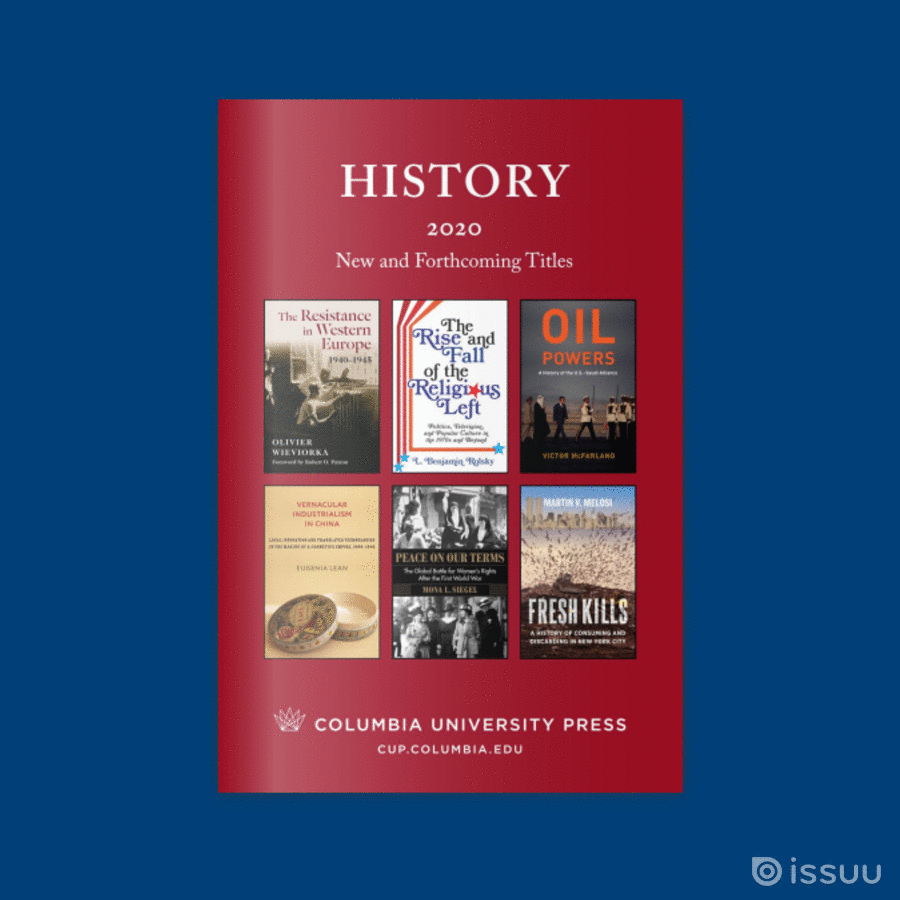Announcing Our 2019-2020 Middle East Studies Catalog

Letter from the editor:
We are delighted to present the Columbia University Press Middle East Studies catalog of new books for 2019-2020. The books gathered here span many fields in Middle East studies—literary studies, philosophy, religion, history, sociology, and politics—and reflect the interdisciplinary and global approach of our list.
2019 marks the release of a landmark primary source studies text from Columbia, The Empires of the Near East and India: Source Studies of the Safavid, Ottoman, and Mughal Literate Communities, edited by Hani Khafipour. This unique, comprehensive volume collects a wide array of newly translated texts from three major empires from the fifteenth through eighteenth centuries, accompanied by scholarly essays illuminating the historical significance of each work. Other new humanities releases of note include M’hamed Oualdi’s microhistory of social and imperial mobility in A Slave Between Empires: A Transimperial History of North Africa; Raja Adal’s Beauty in the Age of Empire: Japan, Egypt, and the Global History of Aesthetic Education, a global study of the diffusion and transformation of aesthetic ideals on the edges of the colonial world; and Hamid Dabashi’s The Shahnameh: The Persian Epic as World Literature, a celebration of the origins and legacy of a world literature classic.
We also offer several important new works on the religions and religious philosophy of the Middle East, in keeping with a long tradition of such offerings at the press. Zahra Ayubi’s Gendered Morality: Classical Islamic Ethics of the Self, Family, and Society and Anna M. Gade’s Muslim Environmentalisms: Religious and Social Foundations both look at pressing contemporary intellectual concerns through the lens of Islamic religious tradition. In philosophy, Wael B. Hallaq’s latest work, Reforming Modernity: Ethics and the New Human in the Philosophy of Abdurrahman Taha, explores the uniqueness of contemporary Arab thought through the work of Islamic philosopher Abdurrahman Taha.
Finally, in the social sciences, Columbia authors continue to unpack the complexities of politics and society in an ever-changing region. Jim Krane provides an insightful analysis of the inner workings of oil-rich Gulf states in Energy Kingdoms: Oil and Political Survival in the Persian Gulf. Mohammad Ayatollahi Tabaar’s Religious Statecraft: The Politics of Islam in Iran brings insider knowledge to our understanding of the interplay of religion and power in the Iranian state. And Mansoor Moaddel’s The Clash of Values: Islamic Fundamentalism Versus Liberal Nationalism takes an empirical approach to understanding how the conflict between fundamentalism and liberalism defines politics in the region to this day.
We hope you share our enthusiasm for these books and the course they mark for the future of our list.
Sincerely,
Caelyn Cobb, editor for global history and politics







